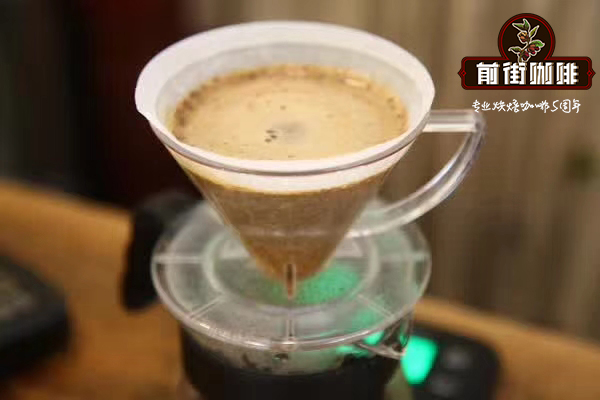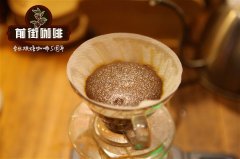Yemeni mocha mattari coffee features Yemen mocha how to drink

Professional coffee knowledge exchange more coffee bean information please follow the coffee workshop (Wechat official account cafe_style)
For lovers who dabble in coffee slightly, when it comes to Yemeni coffee, it is easy to think of "mocha".
If Ethiopia is a changeable woman-complex fruit and flowers, then Yemen is a brave man-chocolate, tobacco and thick taste with a gentle sweet tail.
Yemen has a long history of growing coffee. By the early 17th century, Yemeni coffee beans began to be exported to Europe from the southwestern port of Mocha. Europeans called the coffee beans shipped from the port of Mocha "mocha coffee". Ethiopia, which is across the red sea from Yemen, later used the port of Mocha to export coffee beans, so that coffee beans treated in the sun in Ethiopia are often regarded as mochas.
Yemeni coffee is still grown in much the same way as it was five hundred years ago, almost all on mountain slopes as high as 3000 to 7000 feet. Due to the lack of rainfall, it is necessary to rely on the strong water retention capacity of coffee trees to survive the dry period. The bad growth conditions make the coffee beans smaller, but the hardness is quite high. The varieties of Yemeni coffee are also quite complex, including adzuki bean Ismaili and the ancient heirloom, as well as Adeni and Mattari.
Yemeni coffee is a kind of sun treatment, where the fruits are usually exposed to the sun on the courtyard or roof after harvest, and some of them are even harvested after being dried directly on the trees (this method is called floating).
The natural sun treatment in Yemen is to manually harvest fully mature coffee beans and directly place the newly harvested coffee beans in a special coffee drying yard or in their own compacted soil front yard to receive the sun. During the sun drying period with Taiwan, rice is usually turned over with a wooden rake to keep each bean evenly dried. After about 20 days of coffee drying, remove the outer pulp and peel from the coffee beans. Yemeni coffee has a rich, complex, mellow, strong fermentation flavor and low acidity, coupled with the uncertainty of Yemeni coffee (when it rains in the season). It is not too much to call it the most special coffee in the world.
Dried fruit must be ground and shelled. Today, Yemen still retains the ancient way of shelling by stone grinding, which is pulled by camels or donkeys.
There are many coffee producing areas in Yemen, and Mattari in Bani Matar (Bany Mattar) province is the most famous, and it is also the highest quality coffee exported in Yemen.
In the early days, the port of Mocha, which was heavily responsible for export, had many names and spellings, such as Mocha, Mokka, Moca, Moka, Al-Mocha, Al-Makha. Wait. The port of Mocha was later abandoned due to siltation and is now exported from the eastern port of Aden and the northern port of Hedda (Hodeida).
The [Yemeni mokamatari] of Qianjie Coffee may be due to the Yemeni way of growing and ancient sun treatment, which makes this bean taste a little early. Wild, full of wild and unruly, people are intoxicated by the rich chocolate flavor in the entrance, the coffee is slightly cool, and the sweet and sour grapes fill the whole mouth.
Qianjie cooking parameters are suggested:
V60According 89 ℃ / 1 15 / time two minutes
Flavor: dark chocolate, grapes, spices
Since people started drinking coffee, mocha has been recognized as a good coffee, with distinctive acidity, and some people think that mocha's special acidity is menacing. That's because after a hard day's work, people's sense of taste becomes dull to delicacy. The coffee itself is very fragrant. The Yemeni Moka is represented by the Mattari produced in Bani Matar. It has a sweet, smooth and unique flavor. The quality of being slightly sour and having strong stamina. Mocha is suitable for mixing with Milds coffee, especially for mixed coffee with Mysso coffee, Indonesian Java coffee and Sumatra coffee. Locals like to make Turkish coffee with a mixture of mocha and Meso. It is the most suitable coffee to drink after a meal. It is also the best of mochas.
Important Notice :
前街咖啡 FrontStreet Coffee has moved to new addredd:
FrontStreet Coffee Address: 315,Donghua East Road,GuangZhou
Tel:020 38364473
- Prev

Guatemala Vivette Nanguo Top Coffee Manor and Variety _ Vivette Nan Fruit Coffee ppt
For more information on coffee beans, please follow the Coffee Workshop (Wechat official account cafe_style). There are over 10,000 coffee farms around the world, including coffee farms for popular coffee beans, high-quality coffee bean farms and rare coffee bean farms. Today, the editor will introduce to you
- Next

Guatemala Vivet Nango Coffee Bean Brand Recommendation_Hand Made Vivet Nango Coffee Parameter Recommendation
Professional coffee knowledge exchange More coffee bean information Please pay attention to Coffee Workshop (Weixin Official Accounts cafe_style) Guatemala has eight main coffee producing areas: Antigua, Coban, Lake Atitlan, Huehuetenango, Fraijanes, Oriente, and San Marco
Related
- Detailed explanation of Jadeite planting Land in Panamanian Jadeite Manor introduction to the grading system of Jadeite competitive bidding, Red bid, Green bid and Rose Summer
- Story of Coffee planting in Brenka region of Costa Rica Stonehenge Manor anaerobic heavy honey treatment of flavor mouth
- What's on the barrel of Blue Mountain Coffee beans?
- Can American coffee also pull flowers? How to use hot American style to pull out a good-looking pattern?
- Can you make a cold extract with coffee beans? What is the right proportion for cold-extracted coffee formula?
- Indonesian PWN Gold Mandrine Coffee Origin Features Flavor How to Chong? Mandolin coffee is American.
- A brief introduction to the flavor characteristics of Brazilian yellow bourbon coffee beans
- What is the effect of different water quality on the flavor of cold-extracted coffee? What kind of water is best for brewing coffee?
- Why do you think of Rose Summer whenever you mention Panamanian coffee?
- Introduction to the characteristics of authentic blue mountain coffee bean producing areas? What is the CIB Coffee Authority in Jamaica?

